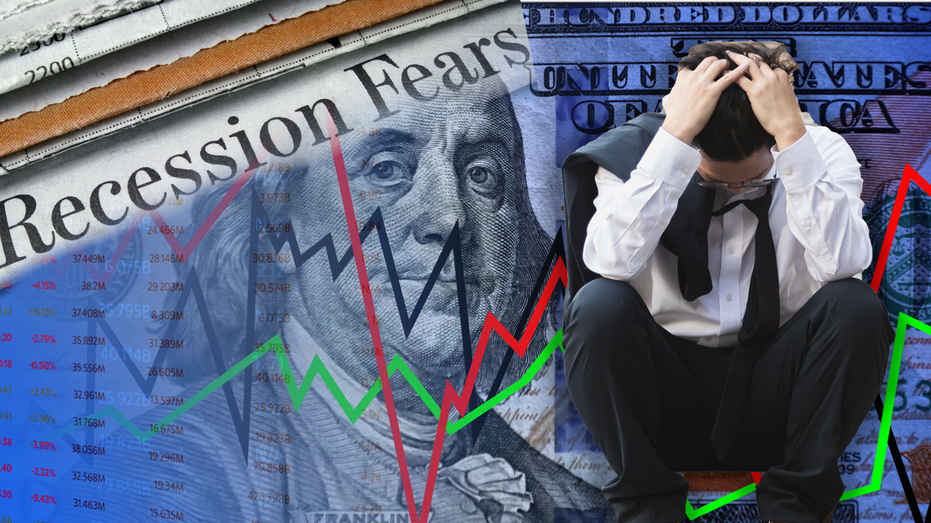Craft Ventures co-founder and general partner David Sacks warns of a recession later this year.
Craft Ventures co-founder and general partner David Sacks warned on Thursday that the U.S. is headed for a “very serious” recession later this year as markets have been experiencing the “worst downturn since the dot-com crash.”
The dot-com bubble was a quick rise in U.S. equity valuations mostly due to investments in Internet-based companies in the late 1990s.
“The reason why sentiment is so negative is because the market has sort of collectively realized that the highs that we saw last year were artificial,” Sacks told “Mornings with Maria” on Thursday. “They were the result of the Fed and Congress and the administration pumping $10 trillion of liquidity into the marketplace.”
“That resulted in inflation and now the Fed has to raise interest rates,” he continued.
“And so over the last six months, there has really been a collapse in valuation levels as people realize that we’re not going to be in this low interest rate environment forever.”
Citi’s Institutional Client Group Chairman Leon Kalvaria argues that at the end of the day, a recession comes from the consumer side of the equation.
On Tuesday, Federal Reserve Chairman Jerome Powell reiterated his commitment to curbing the highest inflation in decades, indicating the central bank will raise interest rates as high as necessary in order to tame consumer prices.
INFLATION SOARS 8.3% IN APRIL, HOVERING NEAR 40-YEAR HIGH
Fed policymakers hiked the benchmark federal funds rate by a half point earlier this month, and Powell has all but promised that two, similarly sized increases are on the table at the forthcoming meetings in June and July. He echoed that sentiment on Tuesday as the Fed races to catch up with runaway inflation and bring it back down to the 2% target.
“You’ve seen over the last six months something liking 14% of global wealth has been vaporized,” Sacks noted. “If you go back to 2008 and the global financial crisis, it was at 18%, so you are almost at a level of wealth destruction that we haven’t seen since 2008.”

Craft Ventures co-founder and general partner David Sacks says that markets are experiencing the “worst downturn since the dot-com crash.” (iStock)
The previous two recessions were likely caused by what’s known as an “asset bubble.” Although neither featured a large increase in price inflation, both featured the rapid growth and subsequent bursting of asset bubbles. The 2001 recession was preceded by the dot-com bubble burst, and the 2007-2009 recession was preceded by the housing bubble.
Sacks provided the insight a day after U.S. stocks saw steep selling as more retailers revealed the negative impact of inflation amounting to the worst day for stocks since 2020.
The Dow Jones Industrial Average fell over 1,100 points, or 3.6% on Wednesday.
| Ticker | Security | Last | Change | Change % |
|---|---|---|---|---|
| I:DJI | DOW JONES AVERAGES | 31253.13 | -236.94 | -0.75% |
| SP500 | S&P 500 | 3900.79 | -22.89 | -0.58% |
| I:COMP | NASDAQ COMPOSITE INDEX | 11388.495467 | -29.66 | -0.26% |
Sacks argued that he believes what is currently happening is “the consumer is being impacted” by the soaring price hikes.
“Wages are not keeping up with inflation and so consumers do not feel as flush and you are starting to see that in quarterly reports,” he continued.
“And I think this is what’s going to precipitate a slowdown, a recession in the real economy and I think that’s what’s coming next.”
The Labor Department revealed earlier this month that average hourly earnings rose by 5.5% year-over-year in March, down slightly from 5.6% the month before. The data comes amid surging inflation, which sits near 40-year highs.
Craft Ventures co-founder and general partner David Sacks tells ‘Mornings with Maria’ that markets are experiencing the ‘worst downturn since the dot-com crash.’
Sacks noted that growth stocks, specifically recent listings, including the new IPOs, the SPACs, and “the sort of small-cap growth stocks” are down about 80 to 90% over the last six months, “since inflation became a huge problem and the Fed realized it was persistent [and] not transitory.”
“So there’s been a huge crash in these types of growth stocks, again down 80 to 90% and that has cascaded all the way down into the venture capital markets in Silicon Valley,” he continued.
Saks also forecasted what a recession would mean for venture investments, noting that investments will continue during a downturn as innovation never stops.
GET FOX BUSINESS ON THE GO BY CLICKING HERE
He did, however, warn that “it is going to be a very difficult time for startups to weather because capital availability is reduced and a lot of companies frankly aren’t going to make it.”
“And so I would expect there to be some tough times for the startup ecosystem over the next couple years,” he continued.
CLICK HERE TO READ MORE ON FOX BUSINESS
FOX Business’ Suzanne O’Halloran and Megan Henney contributed to this report.
Credit: Source link


Comments are closed.